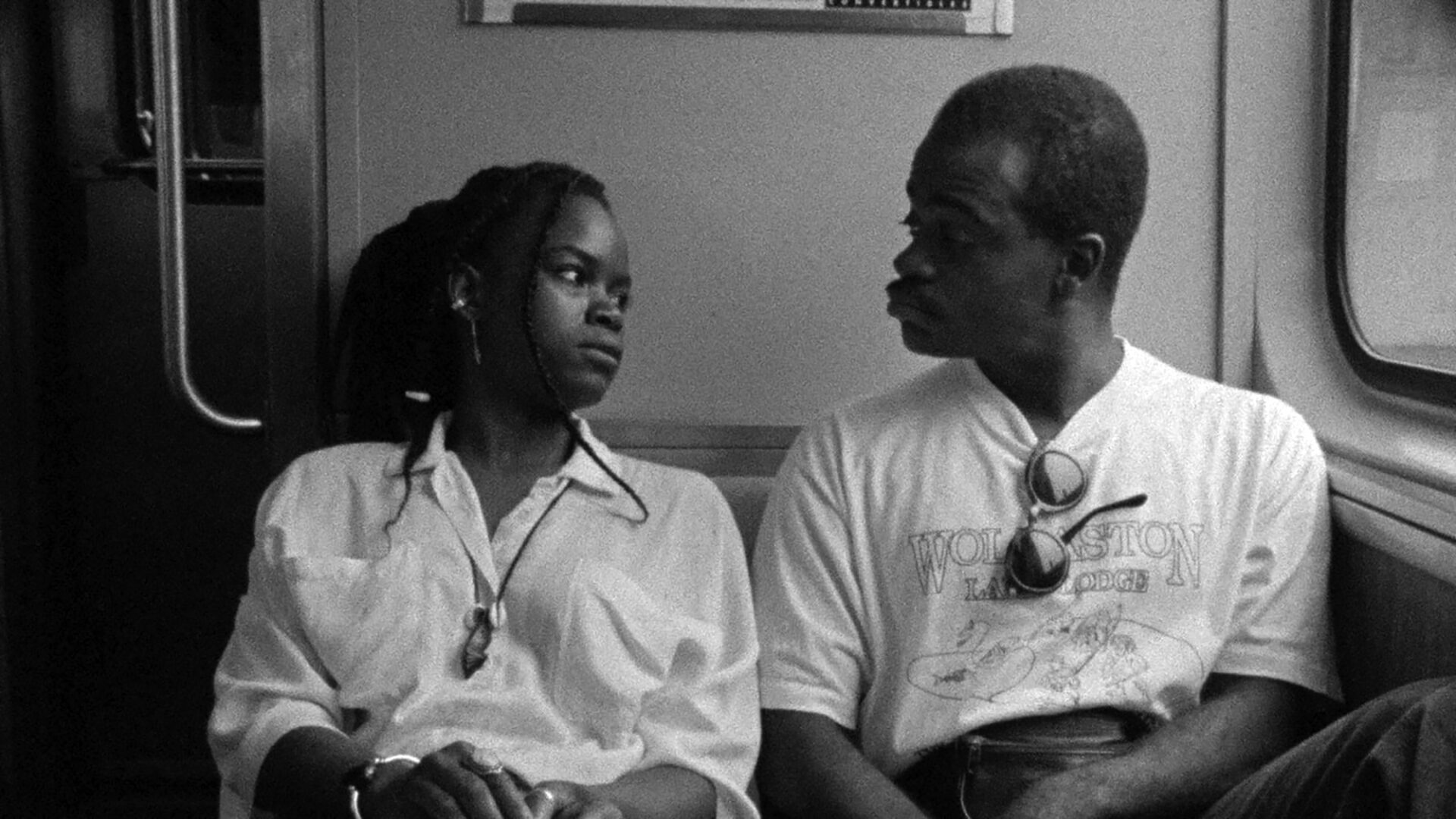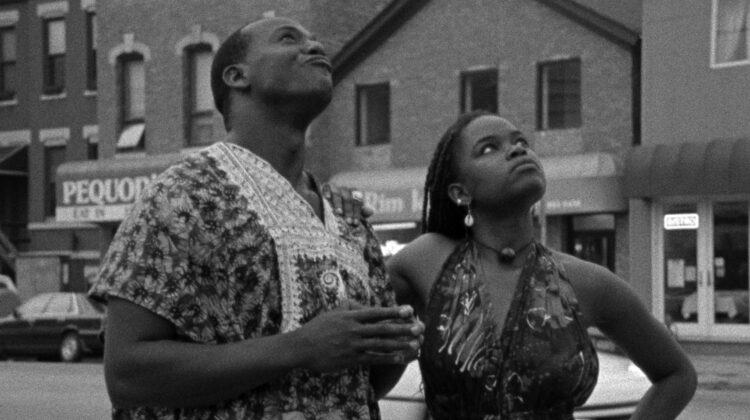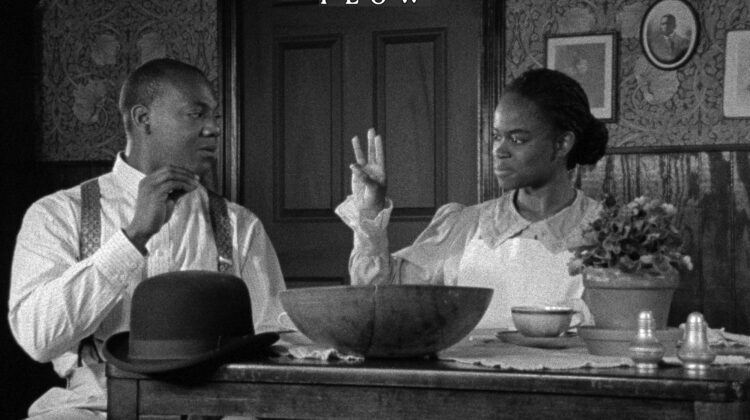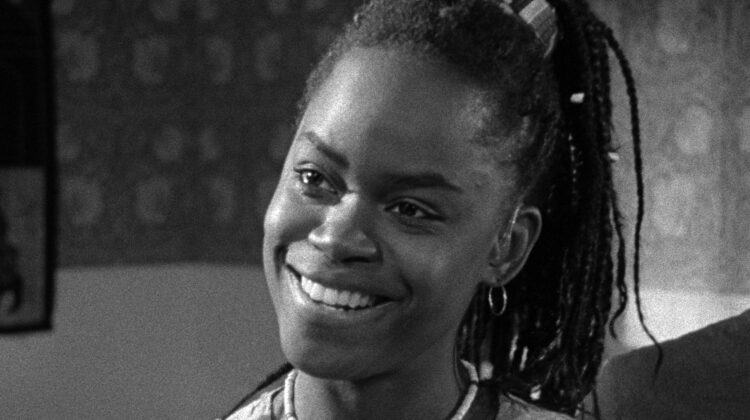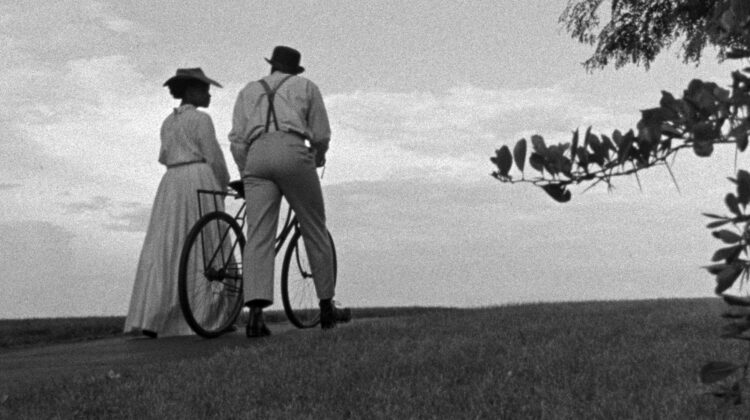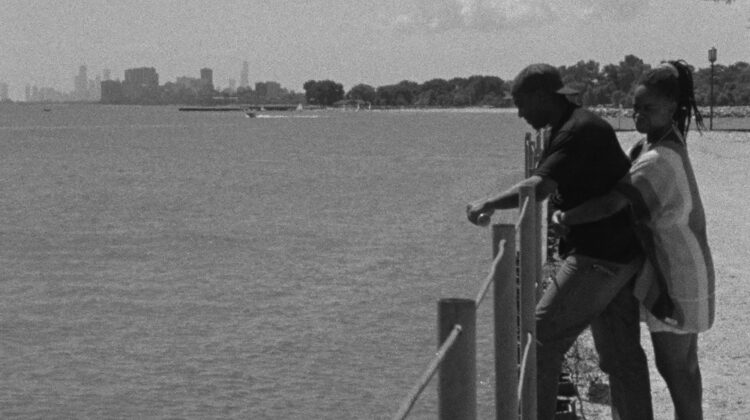- Compensation
- USA1999
- Zeinabu irene Davis
- 92 DCP
- NR
Screening Dates
- June 6, 2025 8:15
- June 8, 2025 6:30
- June 17, 2025 8:30
“Compensation never forgets what it’s really about, and its focus on love as an education—the greatest of them all—reveals it as a gradual, patient, and sometimes comical process of mutual self-advocacy and communication. Its treatment of interabled relationships ranks among the best I’ve seen.”
Emerson Goo, Screen Slate
Though the title comes from Paul Laurence Dunbar’s poem, with its contrast of love’s conditions—compassionate and enduring or inconsistent and vain—Zeinabu irene Davis’s debut feature is a complete original. Compensation contains a lot: two timelines, two pairs of lovers, two cinematic styles. It’s also the first film to draw on, without tokenizing, Black Deaf culture, and maybe the most graceful silent-film homage in all of cinema. Michelle A. Banks and John Earl Jelks play both couples, who meet on a Chicago beach at the bookends of the 20th century. Key to their romantic connection—and alienation—is communication, whether it’s through education, silence, or the obstacle of different languages. Davis cast Banks after seeing her perform in a Deaf theatre company’s Waiting for Godot. Of the film’s use of Deafness as a formal and thematic principle, she said, “In most cases, no words need be spoken in order to evoke compassion and solidarity.”
In English and American Sign Language with subtitles, open captions, and intertitles
“One of the greatest American independent films ever made.”
Richard Brody, The New Yorker
“Both stories are dreamy, atmospheric reveries, rich in humour and social observation … [An] enchanting film about characters who trust themselves.”
Roger Ebert, Chicago Sun-Times
